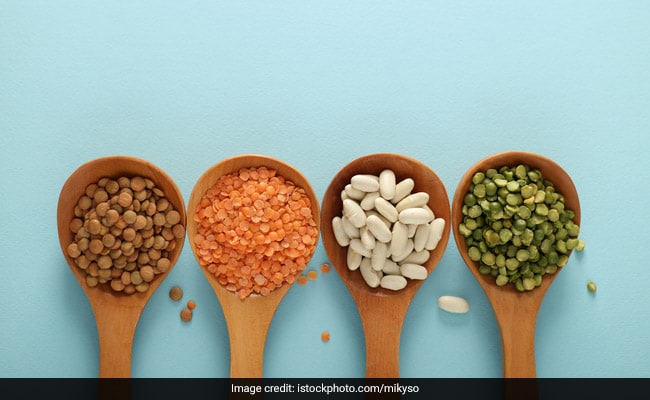
- Protein should be a part of your daily diet
- Soy is a good source of protein for vegetarians
- You can add protein-rich snacks to your diet
National Nutrition Week is observed during the first week of September. This week highlights the importance optimum nutrient intake for better health and growth of the body. It is a great opportunity to create awareness about the important nutrients one should not miss. Unfortunately, there are many forms of malnutrition that plague in India. Numerous surveys and studies have confirmed protein deficiency to be rampant in India. As a carb-loving, largely vegetarian population, your diets are greatly lacking in proteins. Roti, rice, paratha, upma, poha, etc. dominate your meals. For snacks, the aloo samosa, mathri and aloo tikki remain all-time favorites and many often fail to add adequate protein to diet.
Role of protein for health
Apart from improving muscle mass and strength, proteins perform several vital functions in the body. Indian women are genetically burdened with lower bone mass, which can be compensated for with a protein-rich diet. Proteins also play a valuable role in boosting metabolism, which helps tackle obesity. This explains why overweight persons benefit from eating ample protein in the diet. Proteins are also instrumental in lowering the level of ghrelin (the hormone that makes you feel hungry) in the body, and raising the level of leptin (the hormone that induces feelings of fullness and satiety).

Nutrition week 2020: Protein helps in maintaining a healthy weight
Photo Credit: iStock
A function of protein that has assumed great significance today is that of boosting immunity. Without adequate protein in the diet, the body's immune cells cannot function at the optimal level, thus making one susceptible to infections.
The first step towards eating right is to create awareness about the good sources of protein and to dispel any misconceptions. A very common misconception is that green leafy vegetables and fruits are good sources of protein. A survey indicated that 70% of Indians believe that green leafy vegetables to be a source of protein. This is far from the truth. Most fruits and vegetables are loaded with beneficial nutrients, but their protein content is very less. Another similar misconception prevails among vegan enthusiasts, who commonly believe that plant-based milks (almond milk, for example) are a good source of protein. One cup of milk from a dairy source contains 7 grams of protein, while the same volume of almond milk contains just 1 gram.
Protein sources for vegetarians
1. Meats, fish, eggs, milk, and dairy products like yogurt and paneer (cottage cheese), are excellent sources of protein. These animal sources of protein are rated higher in quality than their vegetarian counterparts because of a superior amino acid (the building blocks of protein) profile and enhanced digestibility.
2. However, there are enough ways for a vegetarian to get their adequate intake of protein with some dietary tweaks. Soy is one of the richest vegan sources of protein.
3. The wide variety of pulses and legumes, nuts and seeds are also good sources. Although pulse proteins are considered incomplete because they lack one of the essential amino acids, they can become almost as good in quality as the non-vegetarian proteins when combined with cereals in the ratio of 5:1. To cite a simple example, a paratha stuffed with dal, sattu or peas is preferable to an aloo paratha.

Nutrition Week 2020: Pulses are a plant-based source of protein
Photo Credit: iStock
4. As for snacks, make sure to include seeds, nuts and legumes in your recipes. By sprinkling 2 teaspoons of sesame seeds (til), you can boost the protein value of a dish by 2.5 grams.
Daily protein requirement
Calculating your daily requirement for protein is fairly simple. According to the ICMR, the average healthy adult requires 1 gram protein per kilogram body weight. So, if you weigh 55 kgs, your protein needs will work out to be 55 grams on a daily basis. Consulting a qualified nutritionist is another way to get a detailed assessment of your diet.
Also read: National Nutrition Week 2020: Eating Healthy Just Got Easier- Follow These 4 Tips To Start Today!
If, for some reason, the protein requirements are not met through diet, one could consider including a nutritional supplement that provides good quality protein and other micronutrients to bridge the gap.
Additional good quality protein is required during phases of growth, adolescence, pregnancy and lactation. Women, therefore, need to be particularly watchful about fulfilling protein needs through the life cycle.
All effort should be made to ensure adequate quantity and quality protein at every meal. When it comes to protein, small dietary changes can make a big difference.
(Neelanjana Singh is a Nutritionist and Wellness Consultant. She is the author of 'Our Kid Eats Everything!)
Disclaimer: The opinions expressed within this article are the personal opinions of the author. NDTV is not responsible for the accuracy, completeness, suitability, or validity of any information on this article. All information is provided on an as-is basis. The information, facts or opinions appearing in the article do not reflect the views of NDTV and NDTV does not assume any responsibility or liability for the same.
Track Latest News Live on NDTV.com and get news updates from India and around the world

